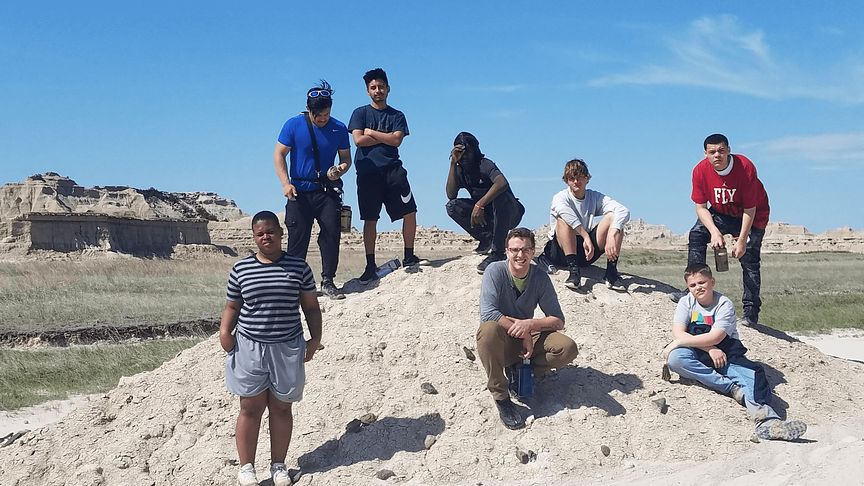What We Do
We personalize the learning program for every student with a personal learning plan that includes an appraisal of the student’s past schooling performance, personal and societal goals and competencies, projects and learning activities for accomplishment of goals, periodic progress toward attainment of goals and competencies, oversight by a strong advisor system, demonstration of learning through presentation. Other features include:
Travel
The Jennings model includes yearly trips, organized and helped paid for by students through fundraising. Past trips have included study in Ghana, Costa Rica, as well as trips throughout the United States. Students have also traveled to San Francisco, Hawaii, New Orleans, New York, and St. Louis studying a range of topics from abolition to saltwater ecology, police brutality to theater.
Global/Community Awareness
Jennings students tackle projects that deal with issues from a local level to a global level. We begin with awareness through research, making connections, visiting community experts, all with the intention of arriving at a place where students can become empowered to act. Actions have ranged from spreading awareness to advocating for new legislation with congressmen and women. Students then present their findings to their peers and community members through presentation days and evenings every quarter.
Project-Based Learning
All learning adheres to Minnesota state standards, but with an individualized approach. Students start from a place of personal interest and then develop projects with individual guidance from advisors licensed in Math, Science, Social Studies, Language Arts, and more.
Academic Content and Credits
We take academics seriously and our program is based on Minnesota Graduation Requirements. Students at JCS will earn 5 credits per semester; 10 per year. This is equivalent to a full high year of credit. The credits earned in Science, Social Studies, Language Arts, Math, Art, Health/Fitness, and Electives. Our Work-Based Learning (WBL) program also helps student earn credits through developing job skills, earning job placement, and maintaining that position throughout the year.
Why We Do It
Most of students have failed in conventional programs, thus pointless to continue more of the same. That would suggest incompetence of former teachers. Teachers face nearly impossible tasks because of:
1. The span of abilities in any general education class (required courses). For example, a seven-year range in seventh grad with some students at the fourth grade and others at the tenth grade.
2. The span of interests in the subject. For example, some students enjoy the course topics, and others are not. In a history class, some students like the story of history, some like studying about wars and their causes. Others have an interest in, say, drama or graphics. Good teachers weave these interests in, but the teacher must have considerable skills.
The failure rate of conventional school is staggering. In the U.S., 1,000,000 students drop out of school each year. Sixty percent of high school students are disengaged according to studies by the University of Indiana.
3. Learning styles vary. Some students like studying textbooks alone. Others like working together while others substitute Howard Gardener’s academic first two categories for those emphasizing interpersonal and extrapersonal inclinations.
We want every student to succeed in school and life. For us, the response to these issues is personal learning plans using the student strengths. Our actions reinforced learning science of how the brain learns.

